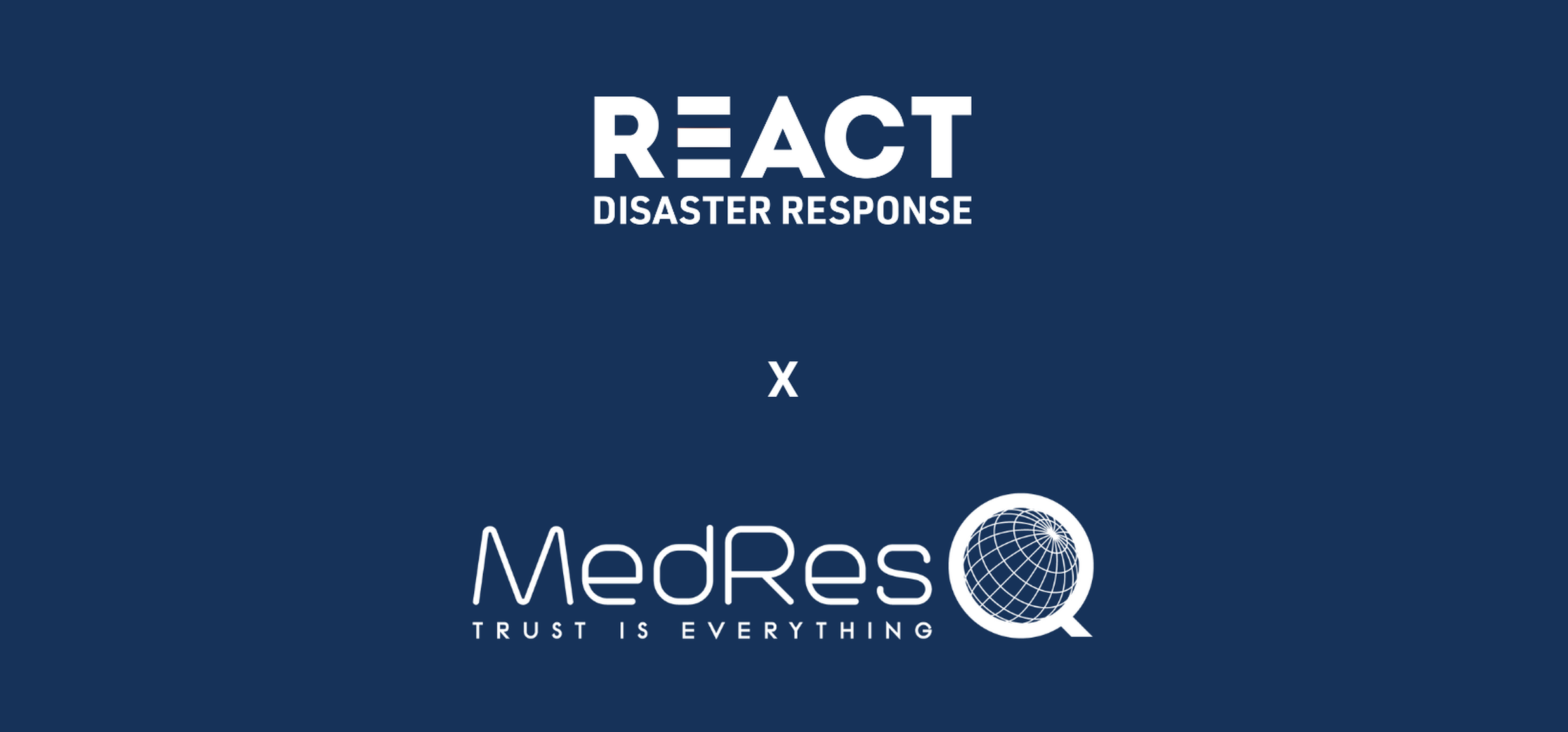REACT Deployment in Ukraine: Building resilience amidst conflict
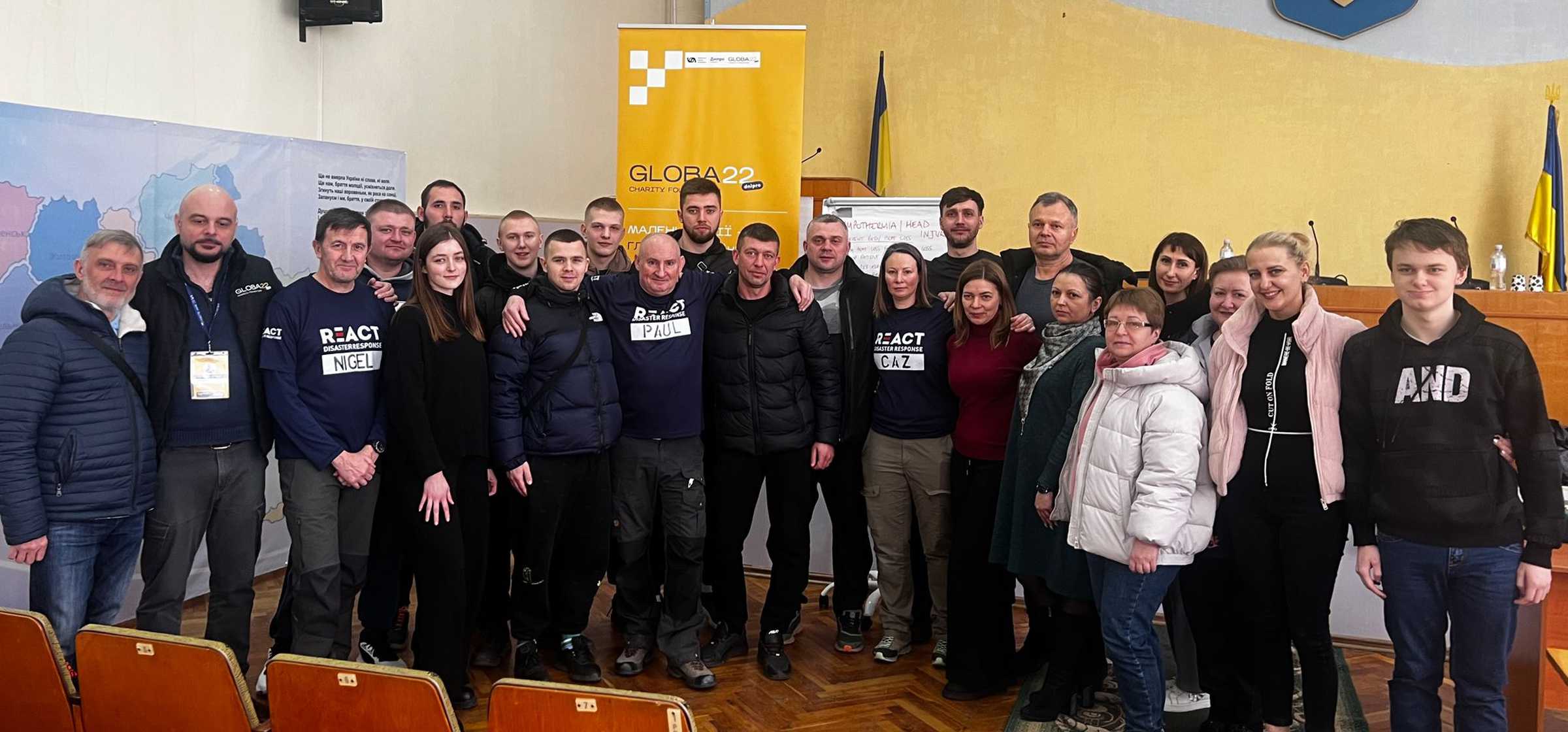
Posted by Laura Butlin 11th March 2024 News
Estimated Reading Time: 2 mins
As the conflict in Ukraine persists, cities like Dnipro, Mykolaiv, Nikopol, and Marhanets have become battlegrounds, bearing the brunt of relentless attacks targeting military infrastructure, civilian areas, and critical facilities. Amidst the continuing chaos and devastation, REACT has deployed again to work with local humanitarian organisations to help build resilience in communities directly affected by the conflict. This most recent deployment was kindly funded by global medical assistance provider MedResQ and saw over 100 people receive lifesaving training.
In February, six REACT Responders embarked on a mission to deliver incident management training to people living and working close to the front line. Aimed at bolstering community resilience, the training focussed on trauma medicine and included the sharing of lifesaving medical skills.
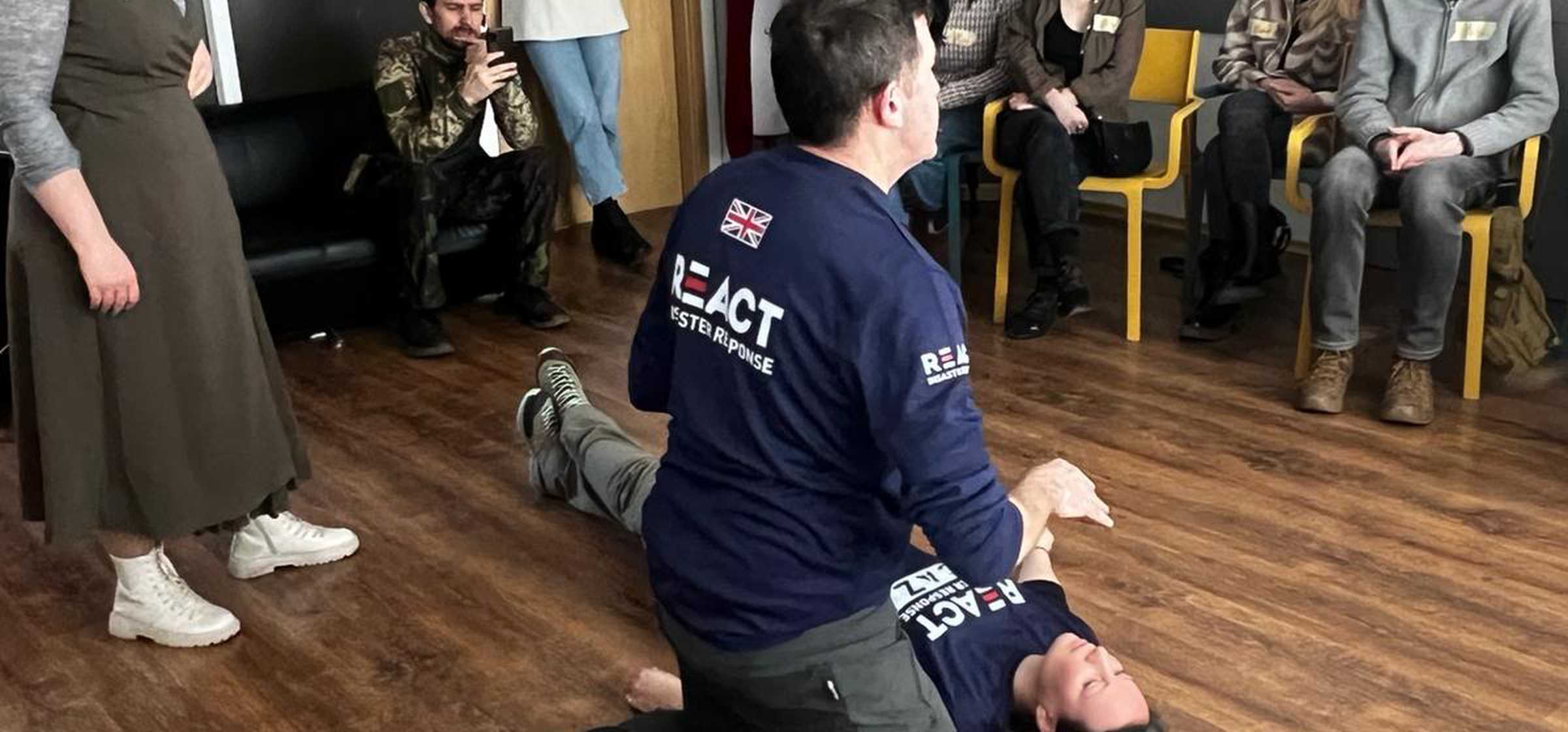
Responders Nigel Jones and Caz Bull demonstrating trauma techniques
In Dnipro, a national logistics hub, Responders collaborated with Globa22 to provide crucial training sessions to a diverse group of participants. The training sessions catered to individuals from various organisations, ranging from youth groups to healthcare professionals and even individuals who wanted to be able to help people in their communities. Despite differing levels of expertise, attendees demonstrated a keen interest in equipping themselves with the necessary skills to respond effectively to medical emergencies exacerbated by the conflict.
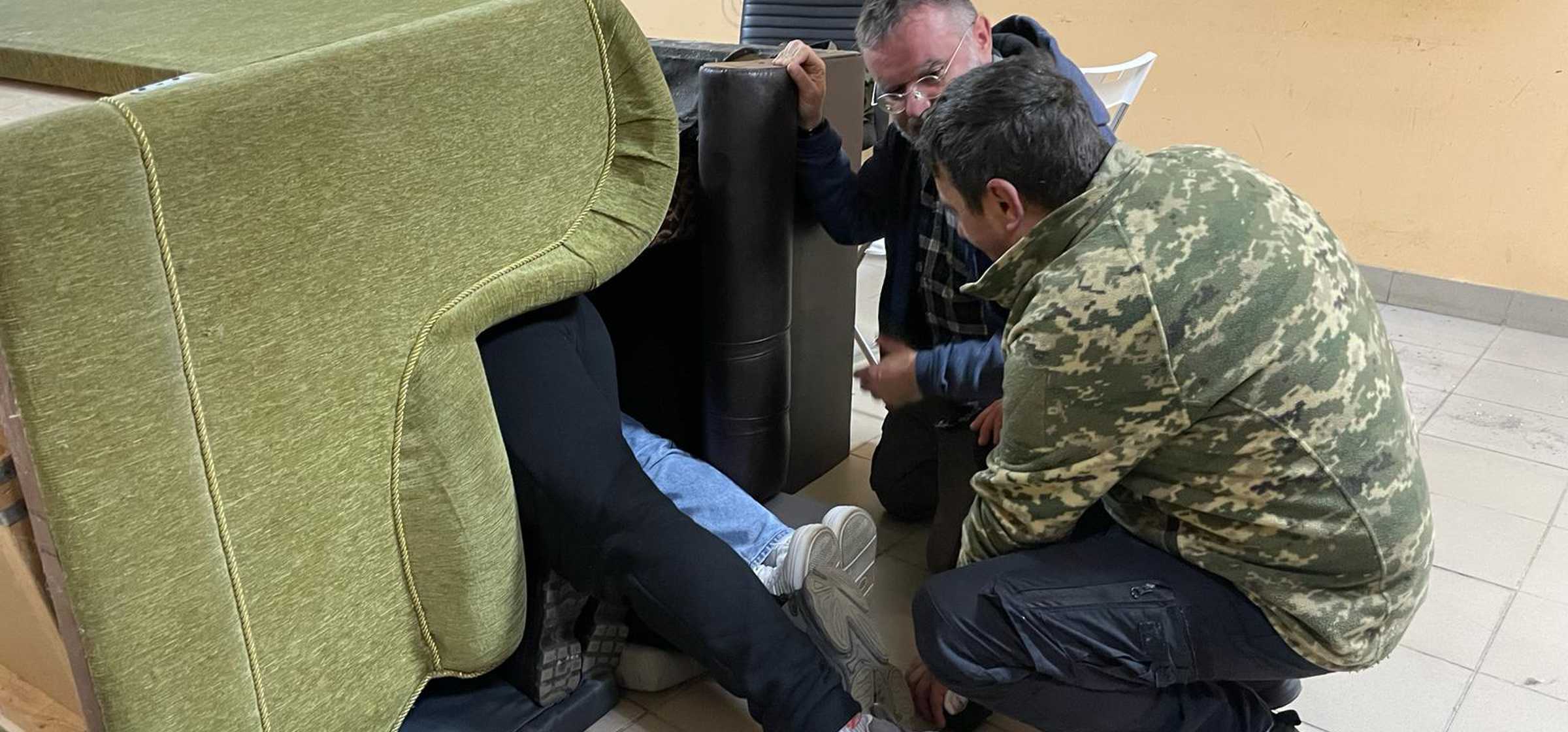
Using an improvised collapsed building rescue sequence and treatment techniques
In Mykolaiv, located perilously close to the 'orange zone' and the Russian frontline, the teams partnered with local community organisations to deliver the training over three days. Attendees, including civilian paramedics, police medics, and volunteers, participated in the training which focussed on how to manage incidents and provide trauma medical assistance in high-pressure situations.
The deployment also travelled to Nikopol, a city subjected to regular indirect fire attacks, intensifying the sense of fear and uncertainty among its residents. Against this backdrop, the teams conducted incident management training sessions, tailored to the needs of individuals exposed to daily shelling and bombardments. The well-received training, held in a secure bunker, provided participants with practical skills and strategies to navigate the challenges posed by ongoing conflict.
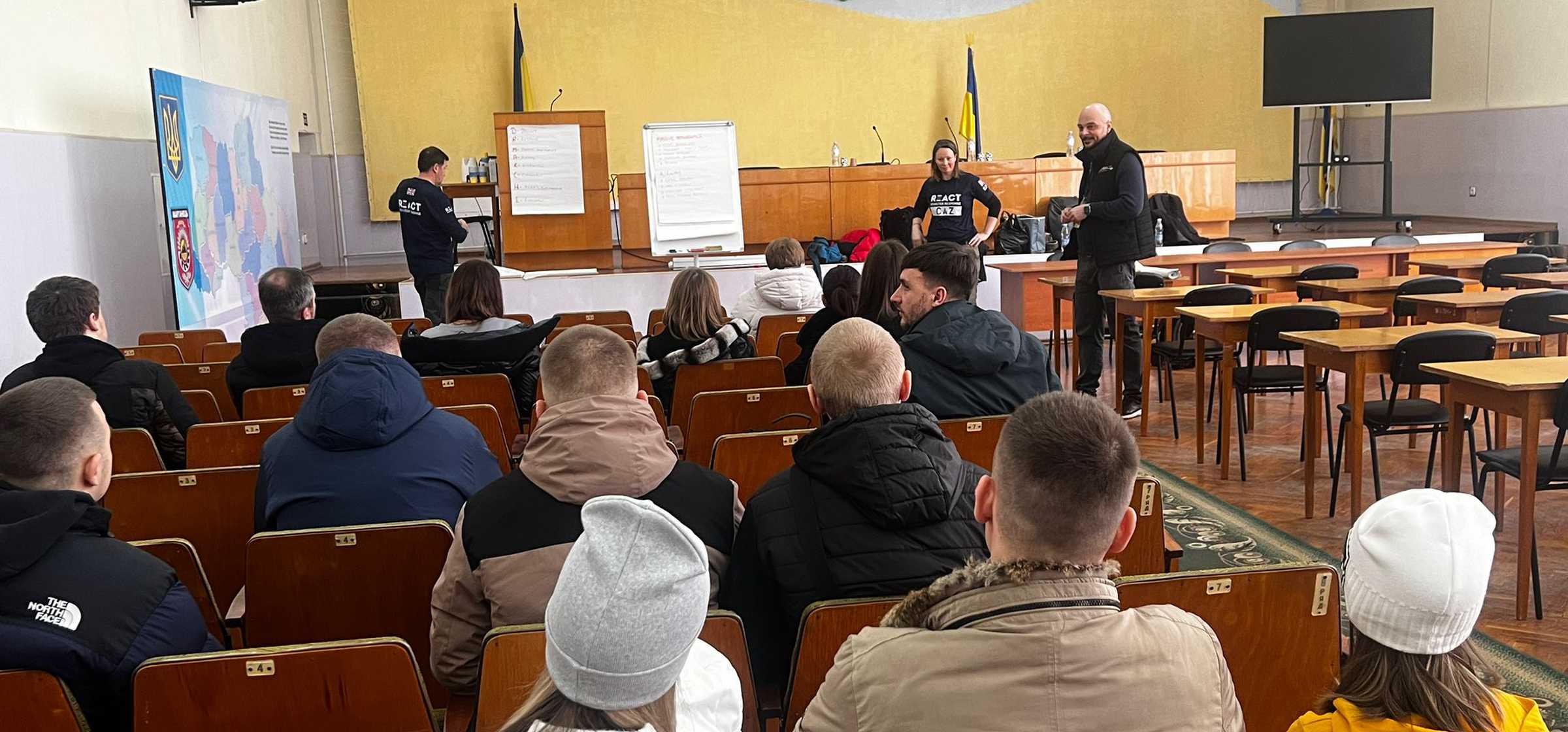
Training in Marhanets with 21 members of local community
In Marhanets, where the intensity of shelling is exacerbated by the presence of a power plant used for military training, the teams delivered incident management training to a receptive audience. Despite the constant threat of attacks, community members demonstrated a strong desire to acquire essential skills and knowledge to protect themselves and their communities.
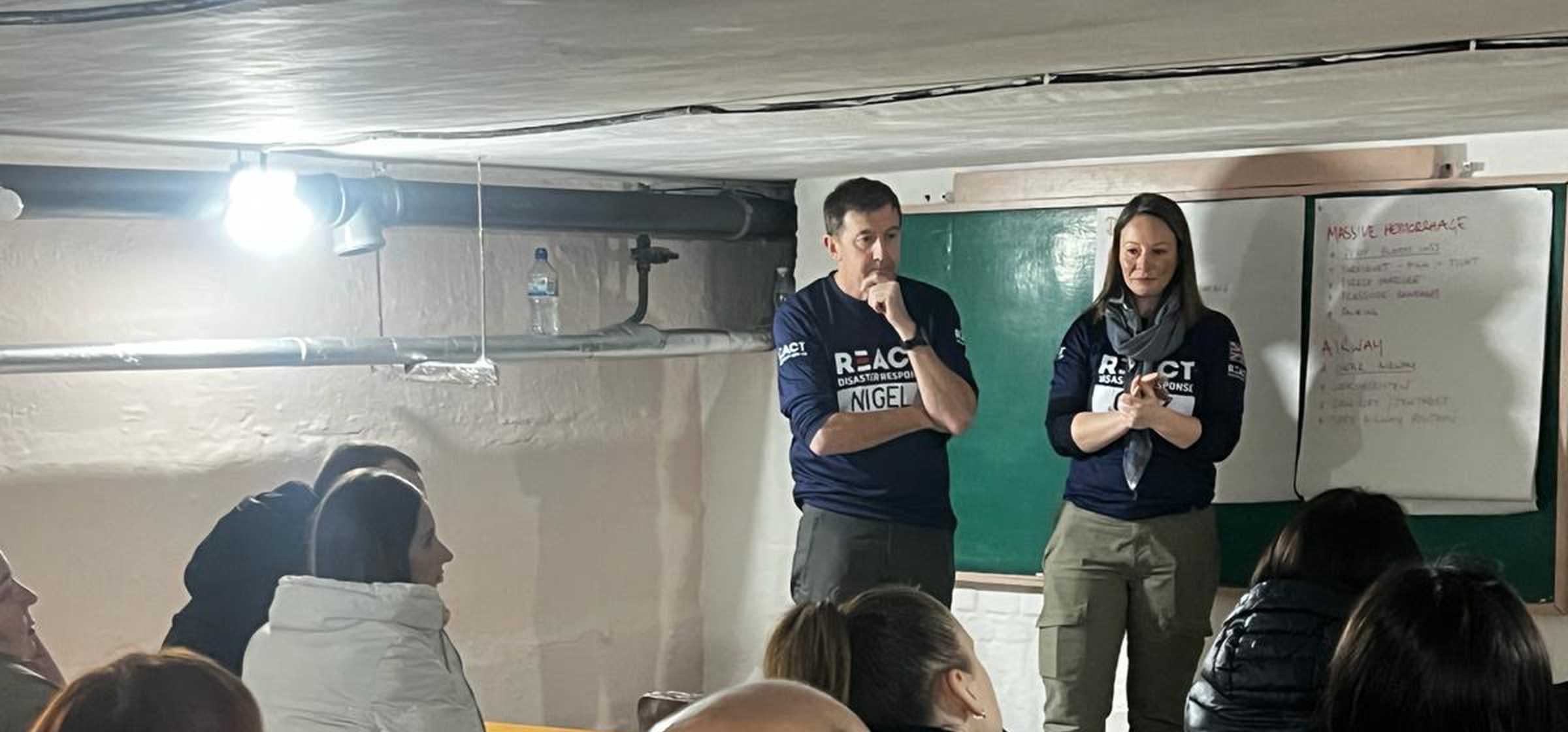
Some of the training was provided in an underground bunker
Throughout their deployment, the REACT team collectively trained over 100 individuals across several cities, empowering them to respond effectively to emergencies and mitigate the impact of conflict on their communities. From healthcare professionals to volunteers, the diverse range of participants exemplifies the resilience and determination of Ukrainians in the face of adversity.
As the conflict continues to unfold, the efforts of humanitarian organisations and responders remain critical in providing support and building resilience among communities affected by the crisis. This recent REACT deployment in Ukraine underscores the importance of humanitarian efforts in bolstering community resilience and preparedness in conflict-affected areas. Through training and capacity-building initiatives, Responders aim to empower individuals and communities to withstand the challenges posed by ongoing conflict and emerge stronger in the face of adversity.
